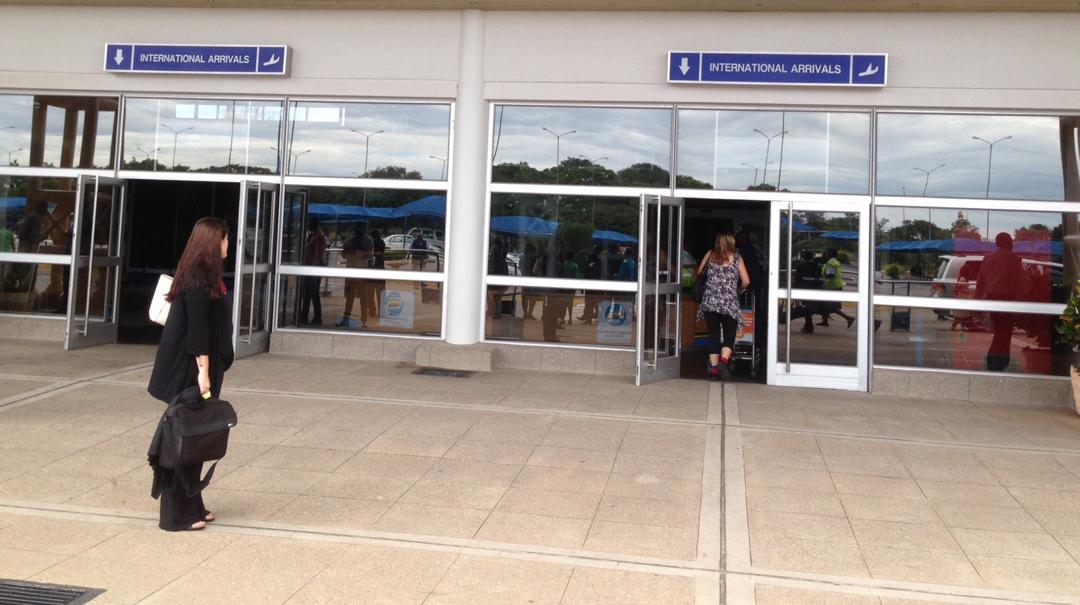Zimbabwe opened the skies for public aviation in early November as the country eased travel restrictions during the Covid-19 lockdown.
As such one Kudzaishe Murapata cherished every second of her one-hour flight to Johannesburg from Bulawayo.
But on arrival in Southern Africa’s largest city, the exciting experience quickly turned into a nightmare as she would be detained in a quarantine centre for almost two weeks.
“I asked but why?” she told CITE.
Her story is that of oversight on her part and that of one of the few listed credible Covid-19 test labs in Bulawayo and also a lapse at the airport health control at Joshua Mqabuko Nkomo International Airport.
Murapata was Covid-19 positive but confidently went past health checks in Bulawayo only to be stopped at Oliver Tambo International Airport exit checkpoint where she learnt that she had tested positive of the novel virus.
She narrated her story.
“I did my test on 5 November. The results came a day later but normally it takes a day. When collecting I gave them my receipt and the person there just went into the lab to collect the results for me. They handed me the results I just brushed through them and closed the envelope. I thought like if I have Covid-19 they would sit me down and call a response team or do contact tracing and so on. But because no one said anything I also assumed I was negative and I left,” she said.
As far as she was concerned she was ready for her trip.
“I didn’t see anything out of the ordinary from the results and to be honest since it was my first time and there was no word from the lab as I left I was ready to travel,” she said.
On Sunday she was ready to travel.
“I got to the airport and was given a form to fill out about Covid-19 and since as far as I was concerned I was negative I wrote that. I then got to the checkpoint and I was asked to produce my results. I gave them to the woman who was manning the area. She read through and then said I should proceed,” added Murapata.
With her not knowing her status and the airport check lady giving her a go-ahead- there was no way she could be positive because a fresh pair of eyes had gone through her results.
She was flying to Johannesburg unknowingly exposing at least 40 people who were on the same flight as her.
When the plane arrived the same test results were required for one to board the plane.
“I produced my passport, ticket and the Covid-19 results and I was told to go through,” she said.
On arrivals at OR Tambo that’s when she got the shock of her life.
“I was last on the queue and when I produced my results the woman checking then asked me if I knew I was Covid-19 positive. She then told me to sit at the waiting area as she investigated the issue with airport officials,” she said.
It then dawned on her that she had put her family back home at risk and everyone else she came across. She also got worried that even strangers on the plane had been exposed all because her results were treated casually from source, up to the airport of departure.
That is how her ten-day stay at a quarantine centre in Johannesburg came about.
An ambulance came and took me to a quarantine centre in the city. I spent ten days there,” she said.
She never felt any flu-like signs to even make her feel that she had Covid-19. To its credit, she says the Covid-19 centre located at Nasrec a suburb in Johannesburg was fully equipped and comfortable.
“The stay was for free. They gave three healthy meals per day. This included vegetables and fruits too. Talk about hot and cold water in clean showers. I was allowed fresh air from 9 AM-6 PM,” she said.
JMN International Airport manager Mr Passmore Dewa confirmed Murapata’s case and urged people to not take things lightly.
“I’m aware of the case and people should always check their results,” he said.
Dr Munekayi Padingani, the Acting Matabeleland North Provincial Medical Director said the country was satisfactorily ready for the opening of borders on 1 December.
“At airports we are sound but I would put that at 80%. The other 20% lies in the public. People tend to look for fake Covid-19 certificates just to travel because they are scared of the tests proving that they could be positive and also that the test is uncomfortable. But if we are to really fight this virus we should all play our part. When borders open in a few days we will be ready for the influx but problem will come with people wanting to cheat the system. It defeats the whole purpose,” he said.
Government on Tuesday said it would enforce lockdown regulations that had been relaxed such as the shutdown of nightclubs and limiting public gatherings to a maximum of 50 people.

